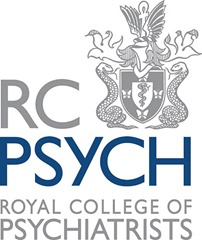Psychiatry transforming your care
 Dr Diana Day-Cody outlines how transforming your care could improve local mental health services.
Dr Diana Day-Cody outlines how transforming your care could improve local mental health services.
Psychiatric illness is a significant health issue in Northern Ireland, with prevalence rates 25 per cent higher than the rest of Britain. The reasons for this include our traumatic past and social and economic deprivation. Transforming Your Care,1 the blueprint for future health and social care services, acknowledges this. Its values of integration, personalisation of care and safeguarding those most vulnerable, in developing both sustainable and evidence-based cost-effective services, are critical in improving the mental health of our country.
Our Mental Health and Intellectual Disability Services already lead the way in implementing such principles. A main focus has been escalating services to target community care. Indeed the success of home treatment services resulted in a 40 per cent decline in patients admitted to acute psychiatric hospitals in the past five years. As a society, however, we must accept that delivery of excellence is not just the responsibility of statutory services but involves all our community.
The role of patient and carer engagement is central to our services. Service development in Mental Health and Learning Disability must have user involvement. The Belfast Health and Social Care Trust has a User Consultant in Mental Health Services – the only example in the UK. Additional good examples of involvement exist in CAMHS, Home Treatment, Personality Disorder and Recovery services throughout our province.
Patients’ needs and preferences must guide care planning. However, when someone is unable to make decisions about their care due to a lack of capacity through illness, this must be recognised so that their rights to care and treatment are protected.
The role of carers is paramount to the success of care. Their needs for information, and practical and emotional support, including respite services, must be met.
Our College believes the development of high fidelity Early Intervention and Rehabilitation services across all Mental Health and Intellectual Disability programmes should be prioritised. Good evidence has illustrated their effectiveness in improving the quality of patient’s care and reducing subsequent spend on inpatient care.
Chronic mental illness is associated with complex health and social care needs. People with mental illnesses, on average, have poorer physical health and die 10-15 years earlier than those without. The provision of integrated care through Integrated Care Partnerships (ICPs) could help to address this. However the intricate transition between services can be difficult. Success requires excellent communication between patients, their carers and all staff involved, ensuring the effective use of limited resources. There is a real danger that if this is not addressed, ICPs could become a bureaucratic interface, rather than enhancing patient care.
Strong leadership and skilled management will be essential to implement the principles of Transforming Your Care. Genuine collaboration between patients, carers, voluntary organisations and Health and Social Care Service Managers at all levels, will require additional training and development in order to be effective. Recent reports have identified poor management and leadership as very significant failures in the Health Service, including Mental Health Services (Francis Inquiry, 20102; Schizophrenia Commission, 20123). Our College believes that psychiatric leadership is fundamental to ensuring safety, clinical effectiveness and improved patient experience and the college is committed to developing the leadership and management skills of its members.
As newly appointed Chair of the Royal College of Psychiatrists in Northern Ireland, I will provide strong local psychiatric leadership, seeking to ensure that our mental health services are accessible and responsive to all.
 The Royal College of Psychiatrists in Northern Ireland
The Royal College of Psychiatrists in Northern Ireland
Clifton House, 2 North Queen Street
Belfast, BT15 1ES
Tel: +44 (28) 9027 8793
Fax: +44 (28) 9031 2461
Email: nirelanddiv@rcpsych.ac.uk





